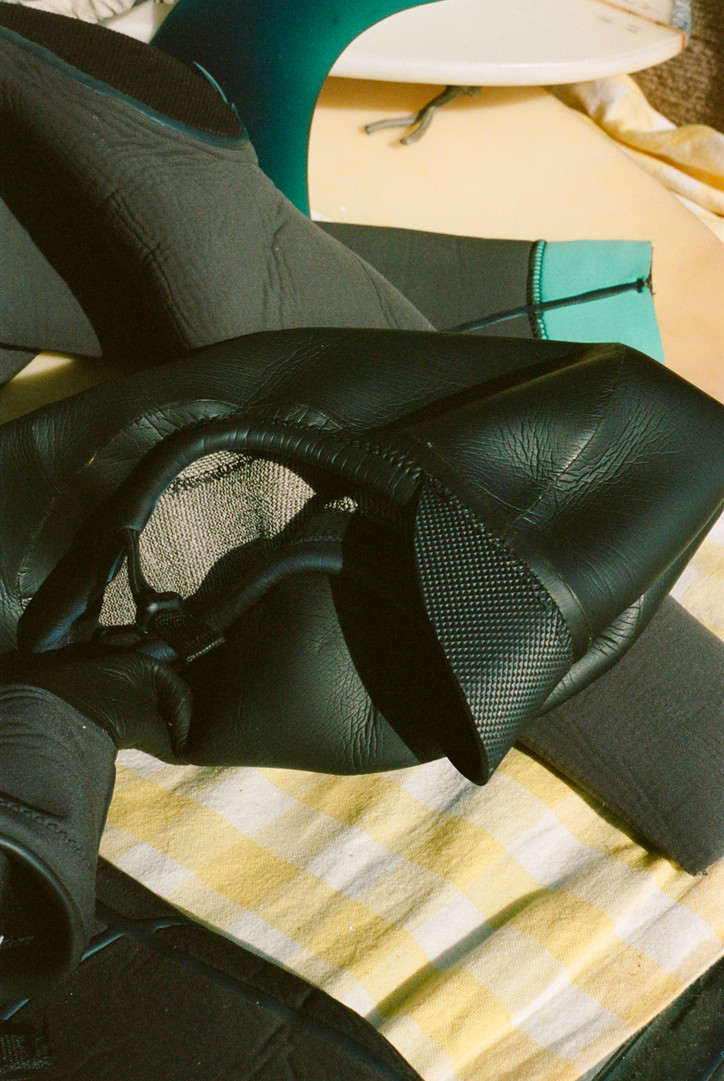Mariza Daras. Brooklyn, NY
Mariza represents a specific type of surfer that has spawned around the globe, mainly in metropolitan areas, and especially here in New York in the past decade. If this type belonged to a category, it would be the “beginner surfer, 30 years old and up, working professional” set. This is large in part to surf schools which make the activity of surfing more approachable to most. These too have categories. The weekend warrior lessons, which mainly see surf instructors pushing first timers into waves on a foam surfboard with the primary aim of getting a good photo for Instagram. The young aspiring pro surfer lessons, which see schools run by pro to semi-professional surfers that coach kids from an early age to shred—everything is video-taped and reviewed after, and all the kids already have sponsor stickers on their board. Finally, the surf lessons given to the 30-and-over set, that are new to surfing and enjoy the aid of a coach to help speed up the learning process and play catch-up to years previously missed surfing.
One unique school that exists in New York is Conatus Surf Club, run by Dion Mattison. The school mainly has middle-aged clients as students, is very demanding, and is rooted in a purist perspective of the sport. Dion’s style easily weeds out any interlopers and produces serious, dedicated surfers. This is where Mariza falls in. She is what could be considered a graduate student of Dion’s program and now surfs sans lessons.
Surfing provides an incredible outlet for Mariza, not just as a recreational outdoor activity that gets her out of the city, but a welcome relief from her professional life. Mariza is a neuro- oncologist at Memorial Sloan Kettering caring for people with cancer affecting the brain, most often after they have had surgery. She manages their treatment and complications related to their disease or therapies, but as most of these tumors are invariably incurable, she helps patients and their family cope with their prognosis. Given the limitations of the current therapies, her efforts are also focused on finding better treatments, and involved in clinical trial, design, and development. To put things more bluntly, 80% of her patients have a high fatality rate. Cue Mariza having surfing in her life now.
Mariza first learned to surf three years ago during the fall, and was soon quickly introduced to what it means to surf during the winter. She kept at it, and didn’t table the idea of becoming a surfer again once the weather became warmer. It was because of that first push through the cold that she identifies with and reserves a fondness for surfing during the winter here in New York. The solitude a winter lineup can provide is the relief and enjoyment Mariza enjoys the most. A few friends and the quiet of nature with waves crashing put everything in perspective for her.
